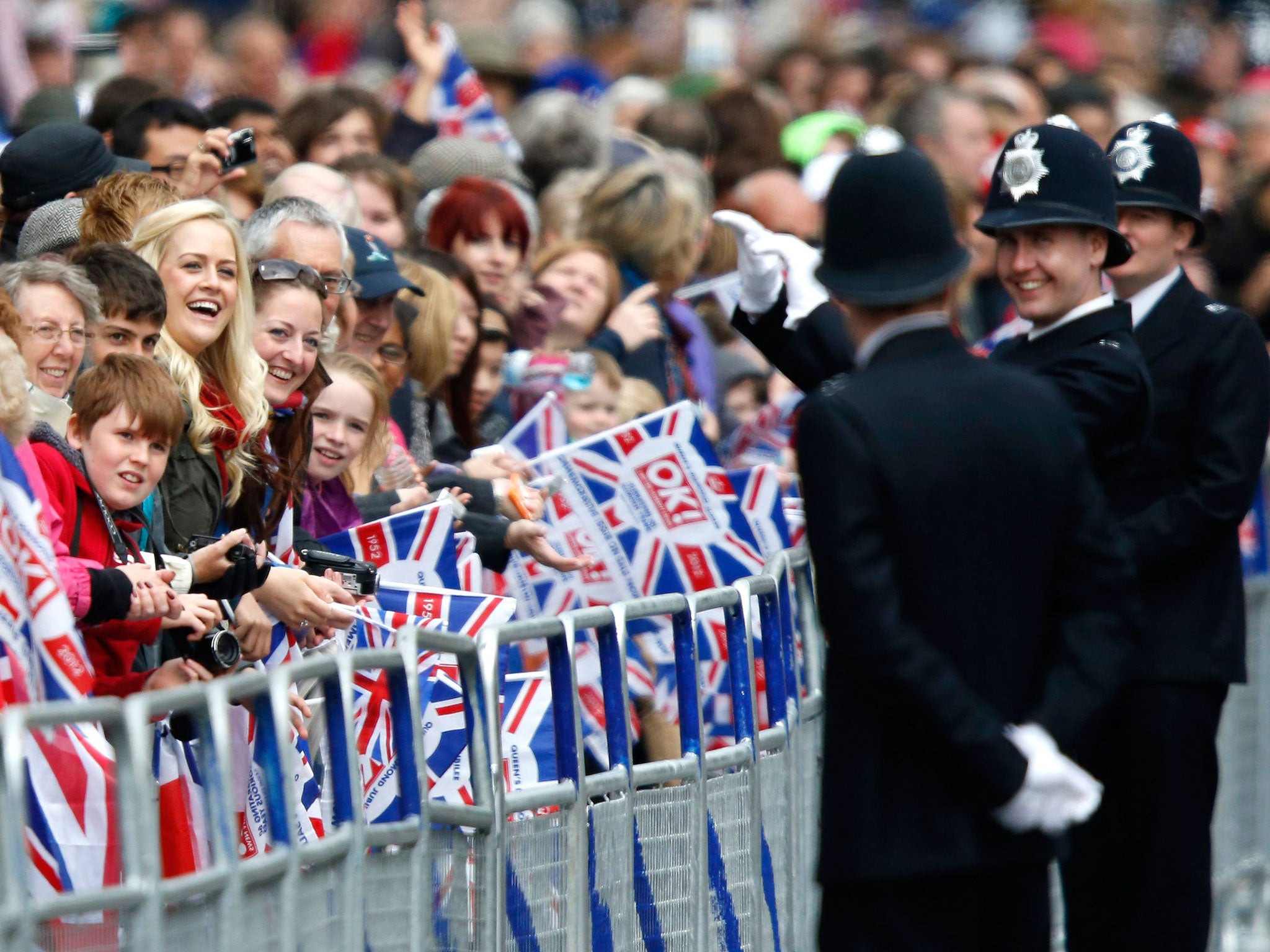Reason to be cheerful: official 'life satisfaction' survey reveals happiness is up and anxiety down
Amid Olympics and the Diamond Jubilee celebrations the UK decided to look on bright side of life

Your support helps us to tell the story
From reproductive rights to climate change to Big Tech, The Independent is on the ground when the story is developing. Whether it's investigating the financials of Elon Musk's pro-Trump PAC or producing our latest documentary, 'The A Word', which shines a light on the American women fighting for reproductive rights, we know how important it is to parse out the facts from the messaging.
At such a critical moment in US history, we need reporters on the ground. Your donation allows us to keep sending journalists to speak to both sides of the story.
The Independent is trusted by Americans across the entire political spectrum. And unlike many other quality news outlets, we choose not to lock Americans out of our reporting and analysis with paywalls. We believe quality journalism should be available to everyone, paid for by those who can afford it.
Your support makes all the difference.The UK has barely crept out of recession and the immediate economic outlook doesn't exactly call for champagne and caviar, nevertheless reasons to be cheerful in Britain are on the up, according to new official figures.
A small upward tilt in national happiness over the last year has been recorded by the Office of National Statistics, with the Olympics and the Diamond Jubilee celebrations cited as a possible explanation for the UK taking the advice of Monty Python's Eric Idle - and deciding to look on the bright side of life.
The ONS annual survey, which began in 2010, is carried out to assist the government in developing positive policies that improve well-being. Introduced by David Cameron, it was intended to provide an additional measurement lacking in traditional economic data.
Although ONS statisticians admit they can't offer a precise explanation, it would appear the UK's barrel-load of medals at London 2012, the global success of the Games, and the party atmosphere generation by the Queen's Diamond Jubilee celebrations, lay behind the modest rise in national happiness.
Those rating their life satisfaction at more than seven out of ten, rose from 75.9 to 77 per cent over the past year. The survey also showed a modest fall in anxiety levels, with the proportion of those surveyed rating anxiety levels of more than six out of ten, falling from 21.8 to 20.9 per cent.
The ONS also broke the figures down by ethnicity and found that whites and Indians reported being the happiest with a 7.48 rating, with the UK's black, African and Caribbean population least happy with a gloom rating of 6.86.
Four out of 10 black people reported their life satisfaction to be low or very low. However only two out of 10 white people delivered a similar negative outlook.
While ancient Greek philosophers such as Aristotle believed "happiness depends upon ourselves" the severe economic downturn in Greece and other EU countries suggests a greater complexity in factors that affect satisfaction and well-being.
According to the UK's statisticians, the factors most associated with personal well-being included health, employment and relationship status.
In the survey, women rated their anxiety levels higher than men. People aged 45 to 54 were the most dissatisfied, with young people apparently having beyond-average happiness, and the retired showing they were the most content.
Widowed and single people rated their life satisfaction lower than couples.
The ONS compared data across Europe between 2007-2011 and estimates that the British are happier than the French, Germans and Italians.
Out of the 27 EU member states, the UK's happiness ranking on the European Quality of Life Survey is tenth. According to the ONS this showed Britain was a "picture of stability" measured as the gloom rating revealed in other EU countries.
Glen Everett, programme director for well-being measurement at the ONS identified once-in-a-lifetime "events" as a potential source of the UK's fell-good increase.
The Olympics and the Diamond Jubilee celebrations were quoted in the survey report. It said "These events could have potentially influenced people's assessment of their personal well-being in the 2012/13 period."
A spokesman for the Cabinet Office said the new figures published by the ONS would help develop a "trusted and accepted" national statistics for well-being that would help improve the reasoning behind government policy decisions.
Join our commenting forum
Join thought-provoking conversations, follow other Independent readers and see their replies
Comments